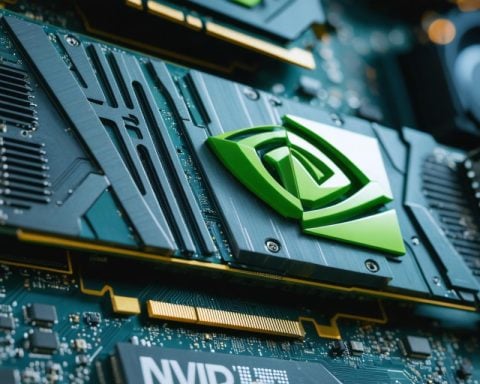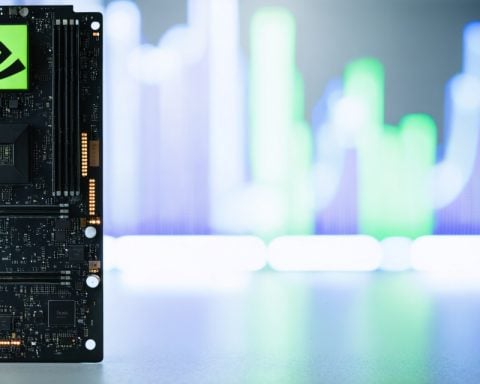The State’s Bold Shift Towards EV Investment
Amidst contrasting policies from Washington, Michigan continues to emerge as a powerhouse in the electric vehicle market. The state is witnessing an impressive investment of over $27 billion across approximately 60 EV manufacturing and battery projects. This investment eclipses even Georgia’s $26.6 billion, reinforcing Michigan’s historical significance in the auto industry while adapting to modern demands.
Michigan is bustling with activity, highlighted by GM’s Factory ZERO in Detroit, a revamped assembly site for electric models like Hummers and Silverados. Additionally, a $1.6 billion battery facility in Van Buren Township is set to generate over 2,100 jobs, producing 200,000 EV batteries annually.
Local dealership owner Eric Frehsée emphasizes his commitment to the EV transition, equipping his business with the necessary tools to serve electric vehicles and investing in technician training. Nearby, Ray Smith operates an EV training program for aspiring technicians, equipping them with vital skills to work on electric systems.
Despite potential pullbacks in federal EV incentives under the new administration, major manufacturers like Stellantis express confidence in adapting to changes. Industry experts note a growing consumer interest in EVs, acknowledging the challenges posed by reduced governmental support. Nevertheless, the Michigan EV landscape remains resilient and focused on innovation, ensuring that the state is well-prepared for the electrified future of transportation.
Implications of Michigan’s EV Investment Strategy
The robust investment in electric vehicle (EV) infrastructure in Michigan signals a transformative shift within the broader automotive landscape, poised to influence both local economies and global markets. The state’s commitment to electrification undoubtedly redefines its cultural identity, steeped in a century of automotive legacy. As factories evolve to accommodate electric models, they not only retain traditional manufacturing jobs but also create new roles aimed at supplying a rapidly changing transportation sector.
At the global level, this pivot could catalyze a new economic paradigm. With major automakers moving towards electric production, Michigan is strategically positioned to become a leader in the expanding EV market, which, according to industry forecasts, is expected to grow from $163 billion in 2020 to $800 billion by 2027. This expansion could also spur a wave of technological advancements, from battery innovations to charging infrastructure, fostering a competitive edge not just nationally but on an international scale.
Environmental implications are profound as well. Transitioning to electric vehicles suggests a significant reduction in greenhouse gas emissions, particularly if paired with renewable energy sources. The long-term significance of Michigan’s investment could catalyze broader acceptance of EVs, encouraging policy shifts aimed at sustainability. The state’s leadership in this sector could prompt similar initiatives globally, inspiring other jurisdictions to invest in cleaner technologies.
As Michigan revs its engines toward electrification, it sets a precedent for the future of mobility, with far-reaching impacts that extend beyond state boundaries, shaping societal norms and the global economic landscape for generations to come.
Michigan’s Electrifying Leap: The Future of Electric Vehicles
The State’s Bold Shift Towards EV Investment
Michigan is cementing its position as a formidable player in the electric vehicle (EV) landscape, with an astonishing investment of over $27 billion directed toward approximately 60 EV manufacturing and battery projects. This commitment not only surpasses Georgia’s $26.6 billion but also underscores Michigan’s historical dominance in the automotive sector as it transitions into the electrification era.
Key Features Driving Michigan’s EV Revolution
1. Major Investments and Projects: Michigan is home to high-profile facilities like GM’s Factory ZERO in Detroit, which has been transformed to focus on manufacturing electric vehicle models, including the Hummer EV and Silverado EV. Furthermore, a significant $1.6 billion battery plant in Van Buren Township aims to produce a staggering 200,000 EV batteries annually, creating over 2,100 jobs.
2. Expanding Workforce Skills: The shift towards electric vehicles has triggered a burgeoning demand for skilled technicians. Local businesses are proactively responding by investing in technician training programs. For instance, Ray Smith runs an EV training initiative designed to prepare the next generation of technicians to handle electric vehicle technologies.
3. Industry Confidence Amid Challenges: Despite potential cuts to federal EV incentives under the current administration, major automakers, including Stellantis, remain optimistic. They are actively exploring strategies to adapt their operations and maintain momentum in the electric vehicle segment, showcasing a robust commitment to innovation.
Pros and Cons of Michigan’s EV Investment
Pros:
– Economic Growth: The influx of investment is expected to generate thousands of jobs and stimulate local economies.
– Technological Advancement: Enhanced focus on EV technology positions Michigan as a leader in sustainable transportation solutions.
– Skill Development: Training programs address the skills gap, preparing the workforce for the electric economy.
Cons:
– Dependency on Federal Policies: The uncertainty surrounding federal incentives may impact consumer purchasing decisions and industry growth.
– Infrastructure Challenges: As demand for EVs grows, the need for comprehensive charging infrastructure remains a critical concern.
Trends and Insights in the EV Market
The transition to electric vehicles is reflective of broader market trends, including increasing consumer demand for sustainable transportation options. Industry experts observed a notable shift, with more consumers prioritizing environmental impact in their automotive choices. This trend underscores the importance of innovative technologies and sustainable practices in automotive manufacturing.
Future Predictions for Michigan’s EV Landscape
As global environmental policies tighten and consumer preferences evolve, Michigan is well-positioned to lead in electric vehicle innovation. Continued investment in manufacturing capabilities, workforce development, and charging infrastructure will be pivotal. Experts predict an accelerated adoption of EVs, supported by advancements in battery technology, which will enhance range and reduce charging times.
Comparison with Competing States
While Michigan continues to lead, states like California and Texas are also making significant strides in EV investments. California’s aggressive emissions targets and extensive charging network offer strong competition, while Texas emphasizes its manufacturing edge. However, Michigan’s deep-rooted automotive heritage and ongoing investments are likely to keep it at the forefront of the electric vehicle sector.
Conclusion
Michigan’s commitment to electric vehicle investment showcases a bold shift towards a sustainable automotive future. With significant projects underway, a focus on workforce training, and strong industry support, the state is set to redefine its role in the auto industry while leading the charge towards electrification.
For more updates on the electric vehicle industry, visit Economic Development.













